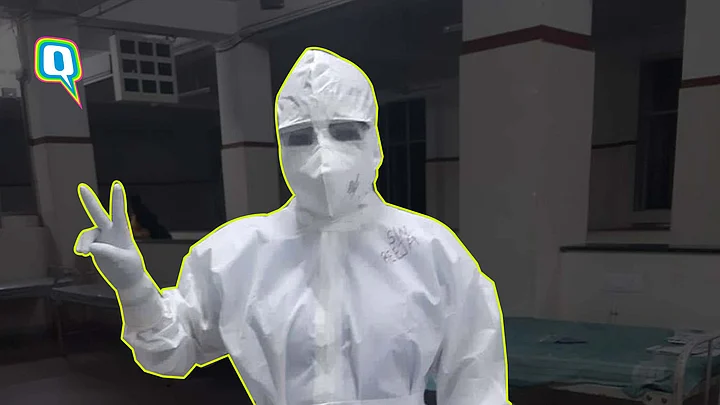Reeja Vishnu, a Kerala nurse working out of Kalamassery Medical College Hospital in Kerala’s Ernakulam was reportedly given the option to opt-out of serving at high-pressure COVID-19 wards so she could take care of her two-year-old child. However, the brave hero declined the offer, saying she cannot back out when her services are needed the most.
The 28 year-old-nurse also said that she has stopped breastfeeding her child owing to the conditions she’s working in. “I have stopped breast-feeding my 2-year-old daughter. Initially, I had some problems but once I wear my PPE, I forget all my worries,” said Vishnu to Hindustan Times.
“I have stopped breast-feeding my 2-year-old daughter. Initially, I had some problems but once I wear my PPE, I forget all my worries,”Reeja Vishnu to Hindustan Times
Lini Puthussery, a 28-year-old nurse who died fighting the Nipah virus outbreak in north Kerala in 2018, is the nurse’s inspiration. A 2019 film based on her life, Virus, was also a big hit.
“After fighting the Nipah virus, which was more dangerous, our health workers are stronger now. It is time to stand with them,” said Lini’s widowed husband, Sajeesh. Lini had also left behind two children, aged six and two. Sajeesh was later offered a job in the healthcare department in Kerala.
Apart from the emotional turmoil of staying away from families and knowing that one is constantly putting their own life at risk, there are also extreme physical challenges to the job. For example, being confined in a PPE, or Personal Protective Equipment isn’t an easy task. It is often said that one cannot work in a PPE for more than four hours, which often feel like forty.
The nurses also need another person’s help to put on the PPE. First, they wear shoes and put on the PPE overalls. Then they’re made to cover their heads and wear masks and goggles. Next, there’s a set of make and gloves they have to put on - all of which could get quite suffocating too.
“At times, we have to wear two or three layers of masks and then put on gloves; one large and another small over it. Since we cannot go to washrooms after putting on PPE, we usually avoid water”Anonymous, Nurse
However, that is not the end of it. Post-duty protocols can be even more hectic. They’re made to disinfect clothes and put them in separate bins. They're also not allowed to wear those clothes at least for a month, a nurse reported.
“Once we move to our hostels and dormitories. We are not allowed to interact with others. We have to inform our superiors about our health twice a day,” she added on condition of anonymity.
With such resilience, it is not a surprise that Kerala nurses are the most sought after around the world. There are over 20,000 nurses from Kerala working abroad, all known for being the kindest and most patient with their patients. Reshma Mohandas, a nurse at the Kottayam Medical College Hospital, who contracted the disease while nursing an elderly couple infected with the virus has already applied to return back to work. In times such as these, it is important to learn from our heroes, and celebrate their bravery. It is also important to do our bit, and stay home.
(With inputs from Hindustan Times.)
(At The Quint, we question everything. Play an active role in shaping our journalism by becoming a member today.)
